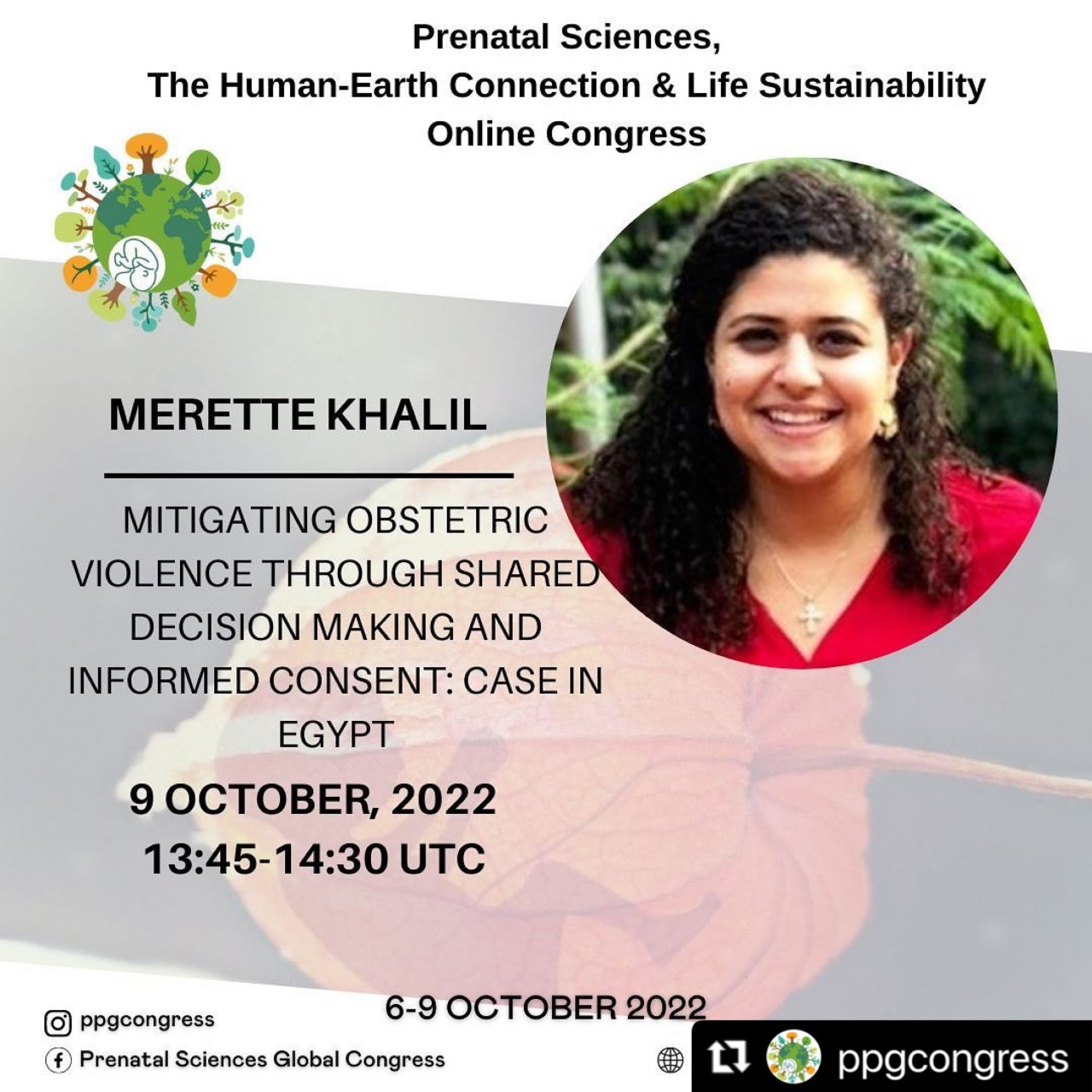By YourEgyptianDoula
The 1st Prenatal Sciences Global Congress, (6-9 Oct 2022), is a momentous interactive event where researchers, academics, health professionals, community workers and members involved in Pre/Perinatal Sciences and their impact on the wellbeing of all living entities in the world come together to share the latest scientific and clinical advances/ findings. The broad interdisciplinary programme features 128 speakers, 8 Plenaries, 4 Special Prenatal Sciences Sessions, 1 Academic Research Paper Session, 4 Paper Sessions, 6 Panel Discussions, 8 Masterclasses, 2 Symposiums, 2 Round Tables, VIDEO-poster presentations and Children Hubs, Art exhibitions and book exhibition open to all and Awards. Educational institutions, systems and service providers, childbirth educators, birth centers, baby clinics, artists, corporations and NGOs also have the opportunity to present their activities to an international audience while learning, sharing, initiating new projects and building partnerships and networks.
The theme of the Congress this year is ‘Prenatal Sciences, the Human-Earth Connection, and Life Sustainability'. You can read more about the theme here.The congress will also provide a digital platform for all decision makers and/or stakeholders involved in Prenatal Sciences and offering services and products that advance health, human relationships, quality of life, prenatal and birth trauma therapy etc.
For students and colleagues in Europe, please note as the congress is accredited by the European Accreditation Council for Continuing Medical Education (EACCME®).

About YourEgyptianDoula's Session:
Globally, studies show as high as 98% of women experience at least one form of obstetric violence, with young women almost two times more likely to experience physical abuse in childbirth. A recent study from the Eastern Mediterranean Region (EMR) concluded that obstetric violence is prevalent – with 6 out 7 types reported by women across two-thirds of included countries. Through the RAHMY project, we learned that Shared Decision Making (SDM) is an applicable intervention to improve Respectful Maternal Care (RMC) but much advocacy is needed due to the normalization of obstetric violence. During this session, we will present a simple three-stepped approach on utilizing SDM4RMC along with the major knowledge products created through the RAHMY (Respectful, Abuse-free, Humanized Motherhood through Youth-empowerment) project.
I would like to take this opportunity to also share with you the policy paper titled "Introducing Shared Decision Making for Respectful Maternal Care: The case for Egypt" which served as the basis for the accepted abstract and forthcoming presentation.

.png?sfvrsn=6d0e27cd_1)



